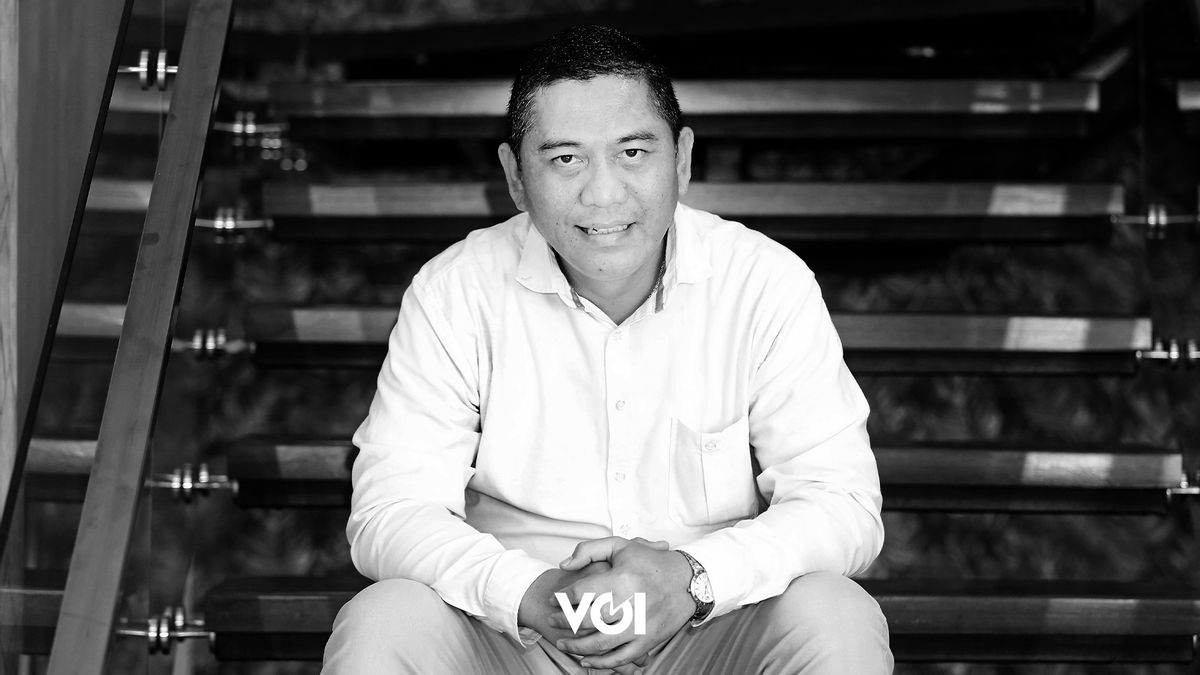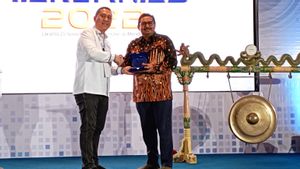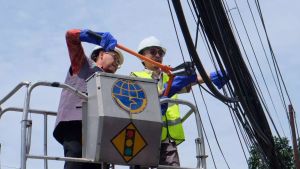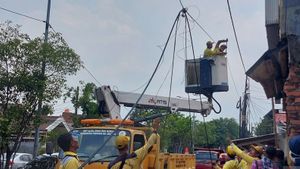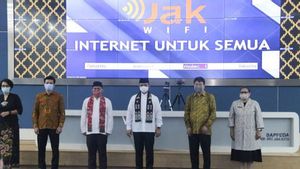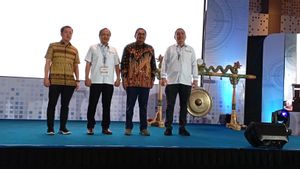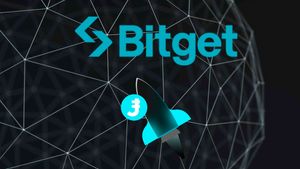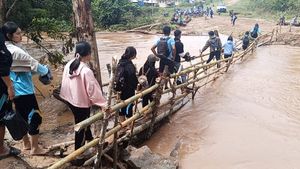Indonesia's vast territory consisting of thousands of islands is a separate obstacle to the installation of optical fiber networks. Currently, according to the general chairman of the Telecommunications Network Operators Association (Apjatel), Jerry Mangasas Swandy, only 30 percent of Indonesia's territory is served by optical fiber networks. He predicts that in 2045 internet networks throughout Indonesia will be connected by this network.
***
The use of optical fiber cable is an option because of the advantages it has. According to the Baktikominfo page, there are several advantages of optical fiber, namely large capacity, thin/small components, does not use electric current, and guarantees data validity. Because it is widely used by telecommunication companies and internet operators to develop networks.
But besides the advantages, there are also disadvantages to using this optical fiber. There are two main disadvantages of optical fiber, i.e. the installation requires a large cost and the installation is complicated.
Of the pluses and minuses, currently, said Jerry Mangasas Swandy, optical fiber is still the top choice. Since it was first used in 2005 until now, only 30 percent of Indonesia's territory is served by optical fiber networks. “It needs support from various parties; government, society, and all parties so that network development can continue and can reach all corners of the country. I am optimistic that in 2045 almost all regions will be connected, yes at least 80 percent," he said.
Some of the obstacles experienced by Jerry and the Apjatel members when they wanted to develop an optical fiber network were that there was no uniformity between related agencies regarding permits and fees charged. All of that becomes a burden for companies that want to develop optical fiber networks.
In several regions and areas, Jerry continued, the cost of deploying optical fiber cables is quite expensive. "Actually, the optical fiber network is also the same as electricity (PLN) or drinking water (PDAM) because they both provide services to the public, only the products are different. One more thing that we complain about when the optical fiber network has to cross the railroad network, there is a difference in policy between DAOP KAI and the Director General of Railways. When the optical fiber network passes through a protected forest area, the permits are quite long. CSOs in the regions also often interfere. This has been our obstacle so far," he told Edy Suherli, Savic Rabos, and Rifai from VOI who met him in Mampang, South Jakarta recently. Here is the excerpt.

Not long ago Apjatel held a national meeting, what will be realized in the future?
The previous Apjatel National Working Meeting carried the theme of the need for speed in deploying and equal distribution of optical fiber networks throughout Indonesia and the full support of all parties, including business people, the central government and regional governments, is needed in collaboration and synergy between the parties; business people in the telecommunications sector, especially in fixed broadband or optical fiber.
How to realize this, there are 7 Apjatel concrete programs in 2023. In accordance with this theme, all parties must work together with the same perspective on optical fiber objects, which are the backbone of Indonesia-Raya connectivity. First, we have communicated with other telecommunications associations in Indonesia to conduct academic studies on regulatory costs in fixed broadband telecommunications. There are various kinds that we have issued for sustainable networks in Indonesia. Starting from us, we also pay as mandated by laws and regulations, the implementation of rights (bhp) and universal service obligation (uso) of 1.75 percent. Secondly, we also pay land rent to provincial and district/city regional governments, central and regional PU as well as levies from mass organizations.
Regarding regulatory costs, why should it be implemented?
It is hoped that the synergy between the center and the regions can help accelerate infrastructure development as President Jokowi hopes for digital transformation. Then we will arrange the optical fiber network. We will also conduct a regulatory forum workshop, where we will open discussions about what an ideal regulatory cost is. The problem is that even though there is Law 39/1999 concerning telecommunications, the Job Creation Law, and also related regulations, there are still regulations that are not in accordance. Then we also conducted FGDs (group discussion forums) with the local government and related ministries so that the network performance could run smoothly. Through this step, it is hoped that everything will run smoothly.
For future regeneration, Apjatel also conducts training and certification on optical fiber for high school students so they can continue their assignments going forward. The matter of vandalism that damages the optical fiber network is also of concern to us. This must be minimized because it can disrupt the communication network. And what is no less important is how to make an Integrated UT Network Facility (SJUT), we can see that the face of the city is already chaotic with an irregular cable network.
So all this time the central and regional governments have been working separately, as if there is no coordination in development?
In fact, the President already has a RPJM (Medium Term Development Plan) as a target, in the telecommunications sector there are still interests from regions that are not the same as each other even though their qibla has been determined. What each region has in common is that the object of this optical fiber cable can be a means of income for the region, which is very disturbing even though what regional government friends are doing is in accordance with their authority.
If so this will create high costs for entrepreneurs, what impact will it have on users?
If operational costs are high, entrepreneurs will certainly find fault so that their capital can return and there is a little profit margin. One that will be affected is the subscription fee because the cost is expensive. Bandwidth prices will increase, currently the average price shared by fixed broadband players is around 350 thousand/month. If there are multiple obstacles, the cost can increase.
In some areas and regions, the cost of deploying optical fiber cable is quite expensive. Actually, the optical fiber network is also the same as electricity (PLN) or drinking water (PDAM) because they both provide services to the public, only the products are different. One more thing that we complain about when the optical fiber network has to cross the railway network, there is a difference in policy between DAOP KAI and the Director General of Railways. When an optical fiber network passes through a protected forest area, the permits are also long. CSOs in the regions are also often a nuisance. This is what has been our obstacle so far.
During the pandemic, the internet network became a mainstay when face-to-face meetings were limited by PPKM rules. What was the experience yesterday like?
This fixed broadband network has proven to be very helpful when Indonesia was experiencing the worst of the COVID-19 pandemic yesterday. The proof is that we can get through it, by continuing to carry out various activities, doing business through the internet network. The education and worship sectors are all carried out online. If we are not supported by a good network, it is impossible for us to get through the pandemic smoothly. When the performance of communications and internet networks is not smooth, how much will we lose, both in the business and government sectors.

The global speed test for Indonesia's internet index is 20.13 mbps with a national average, what is the ideal number?
The minimum standard is 25 mbps for download and 30 mbps for upload. However, the Federal Communication Commission recommends a figure of 40 to 100 mbps internet speed. So we really have to increase our internet speed. And we continue to discuss this with the Ministry of Communication and Informatics.
is there a target to achieve that ideal speed?
I think that is the dream of every country, including us, because with prime speed we can provide ideal service. All related parties must sit together so that this goal can be realized. Including forming a blueprint regarding our telecommunications, especially this fixed broadband.
The government has a Digital Literacy National Movement (GNLD) program, is Apjatel involved in this program?
We support GNLD, but because our association is engaged in providing telecommunication networks in Indonesia. Of course, there are institutions and agencies that are more intense because their main duties are to socialize. However, we as an association are ready to carry out literacy and even advocacy for all Indonesian citizens in need. Through FGDs, workshops, training for SMA/SMK, and so on, we convey what kind of digital transformation we are carrying out in order to achieve the desired goals.
In your opinion, are the Indonesian people now digitally literate, what can Apjatel do to increase public literacy?
In Indonesia, the number of citizens who need information means that they still need socialization through various media. We, as network operators, are not happy if the network we provide is used for bad things. Therefore public literacy must still be carried out for those who have not been enlightened.
The development of the digital economy has accelerated during the COVID-19 Pandemic, this requires the support of a reliable telecommunications network, what is the role of Apjatel in this matter?
Many things changed when the COVID-19 pandemic hit Indonesia and other parts of the world. Online education has become an option, even well-known universities already have online-based programs. The economy that uses online transactions has also developed rapidly during the pandemic and has continued to this day. The agricultural, industrial and other sectors are also online-based. To support all that required a qualified internet network. That is our role in supporting development in these various sectors.
SEE ALSO:
Has Apjatel members supported the network to support the digital economy, digital agriculture and digital industry?
We have provided maximum support. One of our dreams is to support various sectors with the network we provide. The more communities, society and various sectors involved in the digital field, we are increasingly challenged to support. There are more and more people who need a network, we have to compete to provide a network so that the efforts made can stretch. As long as networks and telecommunications are used for good things, we are of course very happy. What we don't like is when available communication and network technologies are used for bad things, such as to commit crimes.
Since what Apjatel members are doing is to support various sectors, why not insist that various obstacles such as complicated permits, rents and high taxes be removed?
We don't want it to be written off, we ask for a reasonable fee so as not to be burdensome and create a high cost economy. If that happens, it will be the community as well. To Governors and Regents/Mayors I say that the aim is to increase PAD (local original income) connectivity through the network is a necessity. When connectivity between the public and industrial players in the area is connected, I'm sure that PAD will slowly increase. So the mainset must be changed, PAD will increase after the internet network is connected. Regarding licensing, President Jokowi has emphasized that it must be done via the internet, so there will be no more face-to-face meetings.
Indonesia's territory is vast, consisting of thousands of islands, this is of course a separate obstacle, how will Apjatel deal with this?
Jakarta can be an example in the procurement of internet networks. Before carrying out the JakWifi program with the Governor of DKI Jakarta at that time and Mr. Anies Baswedan, there were still areas in Jakarta that were not yet connected to the internet network. It was at these points that JakWifi was present and became a connector for community activities. What has been realized in Jakarta can be emulated by other regions throughout Indonesia. Indeed, geographical conditions are the main obstacle. Gradually this must be overcome so that connectivity of all Indonesian people is realized.
For such a large area of Indonesia, how many have been served by optical fiber networks and how many have not yet?
First, I need to convey that the investment in the fixed broadband sector is large and takes a long time to pay back. Second, Indonesia consists of thousands of islands. What is fulfilled by the optical fiber network is only 30 percent, meaning that there is a shortage of 70 percent that has not yet been fulfilled. Even though we have started the construction of the optical fiber network since 2005. This means that we need support from various parties; government, society and all parties so that network development can continue and can reach all corners of the country. I am optimistic that in 2045 almost all regions will be connected, yes, at least 80 percent.
Jerry Mangasas Swandy Learns a Lot from Obstacles

Wise people say experience is the best teacher. In a different narrative, Chairman of the Telecommunications Network Operators Association (Apjatel) Jerry Mangasas Swandy also learned a lot from the obstacles encountered in the field. Especially when you can get past obstacles well, it will be a very valuable experience in the future.
"I did reduce the term or language of grief, because more problems, more mature. When there are many problems, it actually makes us more professional," he said.
According to Jerry, what he is doing is aligning his duties at a telecommunications company now, with the association he leads and the needs of his family.
And what you don't forget is to ask the Almighty for guidance so that you are always under His protection. "I always pray and ask God for guidance so that I can stay healthy and be able to give meaning and be a blessing to others," he said.
Jerry is grateful that what he is doing has the full support of his family. “Before I ran as a candidate for Chairman of Apjatel I had a dialogue with them and they gave me their support. Without their support, I would not have the courage to carry out the tough mandate as the leader of the association," he said.
Another thing that makes Jerry excited is the ecosystem and friendship within companies and associations that also provide support. "What also keeps me enthusiastic is the ecosystem and friendships that have made me learn a lot from company owners, the board of directors, and also professional employee friends," he said.
Jerry is not at all anti-criticism either from within or from outside. A debate for him is a matter of course. "Those who don't agree don't mean they refuse, but just have a different perspective, but the goal is the same. When I meet a friend who likes to argue or criticize, he can be my long friend as long as I serve either in the company or in the association," he continued.
Sports

No matter how busy he is at the office and in associations, Jerry Mangasas Swandy never forgets sports. “My hobby is walking, either outside the house or with a treadmill. You don't need a lot of important routine to burn calories and sweat. Every morning I make time to exercise before going to the office,” said the man who has been in the telecommunication world for 18 years.
Another sport that Jerry likes is chess. "Chess is a habit of the Batak people, right? Parents, siblings, uncles all like to play chess. Like it or not, I also learned and liked chess. It's also one of the sports I like. Even though it's more of a mind sport, yes," he continued.
Not just a sport, chess for Jerry is a vehicle for self-knowledge. “Through chess, we are always introspective, we have to know how we are before moving others. Before moving others we have to recognize it, so we can create positive energy in the work environment and associations," he explained.
Another thing in chess that Jerry can apply is to set a strategy. “With the potential we have, how should we arrange it in such a way as to win the battle. I got it from my love of playing chess. We have to do a strategy if we want to win the battle," he said, continuing to encourage young people to enter the world of telecommunications and digital transformation that continues to grow.
“Young people must continue to maintain the telecommunication climate, both as users, workers or investors. So that we can maximize the digital economy, digital lessons and others. Young people must learn to be the successors of the struggle so that this nation can remain standing in the midst of increasingly fierce global competition," he said.
Family

Even though he is busy with office and associations, Jerry does not forget his family. For him family is everything. “If I can divide my time for companies and associations, I must also be able to allocate time for my family, no matter how busy I am. My principle is work is a hobby, work is worship which must give blessings to others. So I don't know how tired I am, if I'm tired, I rest and sleep, the next day my activities will resume," he said.
Because he does the job with all his soul, raises the most important immunity within. “I do my job with passion. By ourselves we can develop rather than our motivation to want to get something," continued the man who can be called Jerry Siregar.
Even though he is busy, Jerry is never out of touch with his wife and children. "At least during our lunch hour news. Yes, my wife asked and reminded me whether I had eaten or not. It's simple but it means a lot in a relationship," he said, adding that when his family is happy he will be happy too.
Until now, even though he is busy with work, his wife does not complain about being busy. “Before getting married he already knew what I was busy with. After we both found out, we stepped into marriage," said Jerry, who has been managing a household for 10 years.
Family for Jerry Mangasas Swandy is not a hindrance in pursuing a career. On the contrary, the family makes him excited to achieve success.
"In some areas and regions, the cost of deploying optical fiber cable is quite expensive. Actually, the optical fiber network is also the same as electricity (PLN) or drinking water (PDAM) because they both provide services to the public, only the products are different. One more thing that we complain about when the optical fiber network has to cross the railway network, there is a difference in policy between DAOP KAI and the Director General of Railways. When an optical fiber network passes through a protected forest area, the permits are also long. CSOs in the regions are also often an obstacle. This is what has been our obstacle so far,"
The English, Chinese, Japanese, Arabic, and French versions are automatically generated by the AI. So there may still be inaccuracies in translating, please always see Indonesian as our main language. (system supported by DigitalSiber.id)
